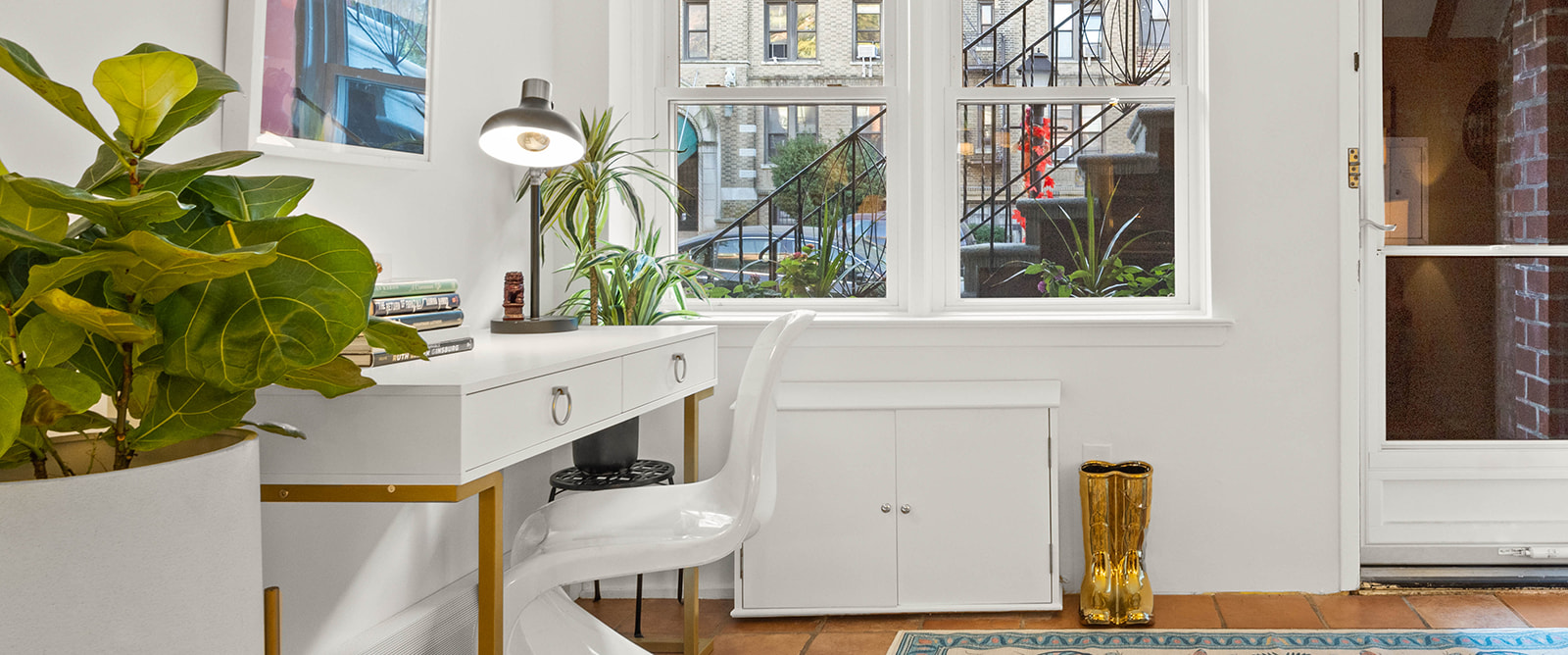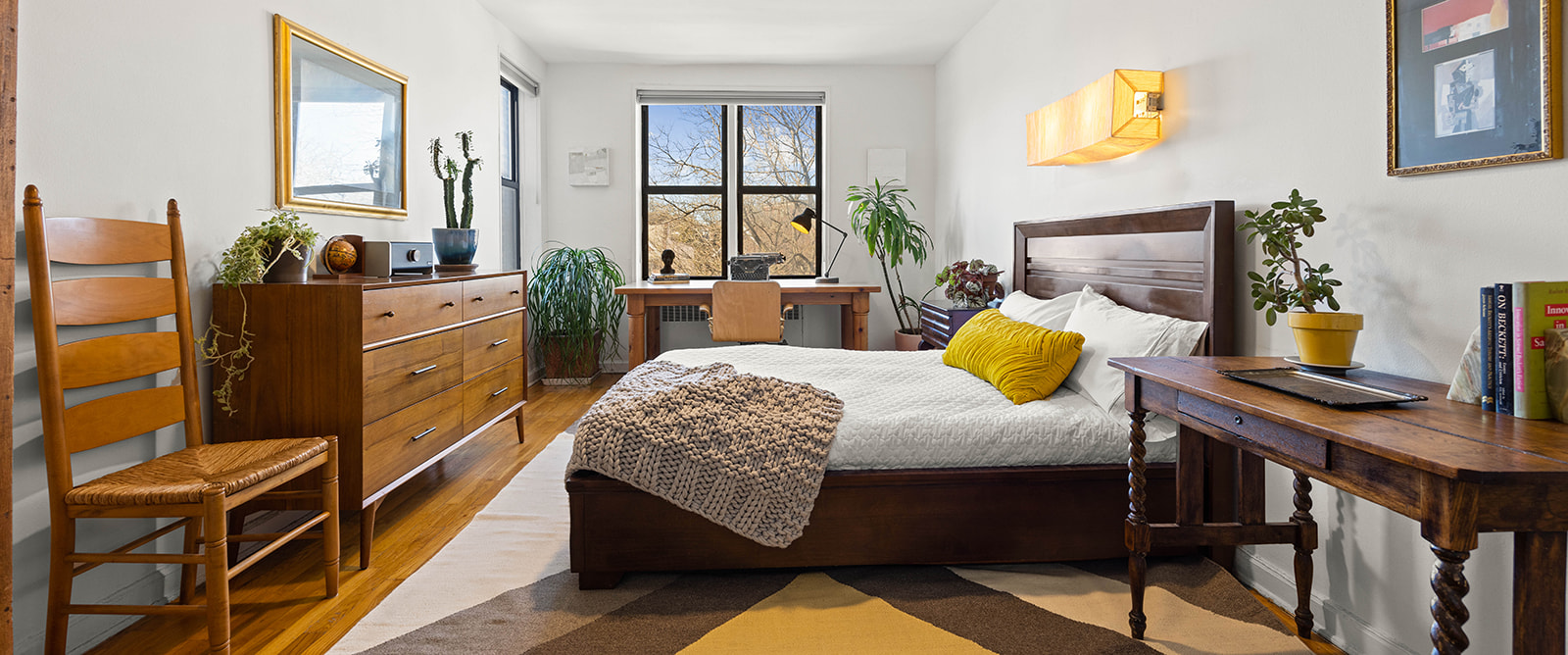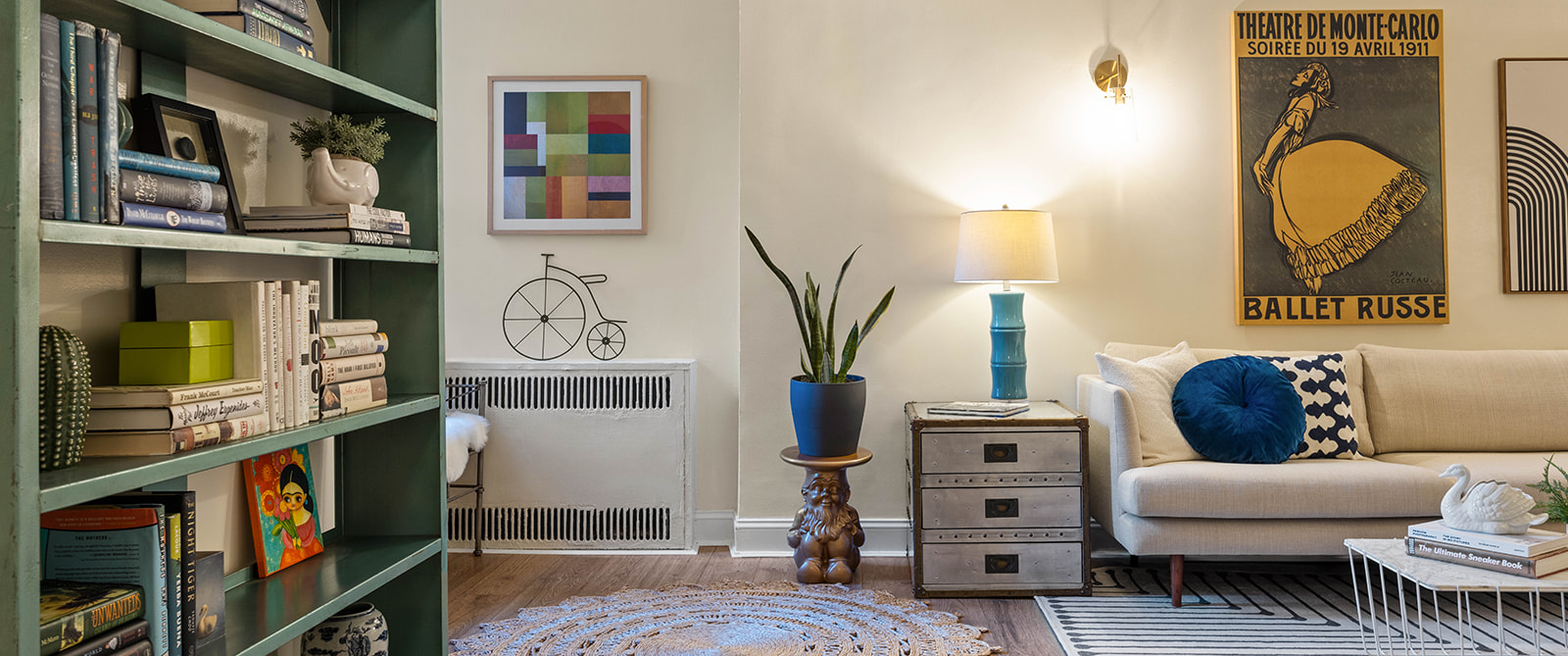
Buying a Fixer-Upper Apartment: Tips From an Experienced Renovator/Real Estate Agent
Many people think of “fixer-uppers” as tackling a gut renovation of a historic Bed-Stuy brownstone or Ditmas Park Victorian, but fixer-uppers come in all shapes and sizes. So if you’re looking to purchase an apartment, consider a co-op or condo in need of work. The majority of buyers do not want to take on projects as minor as small repairs, paint and floors. Even in our current more buyer-driven real estate market, it’s no surprise that the most stylishly renovated homes are still seeing high demand. And who doesn’t want a move-in ready, Instagram-worthy home?
If you can see past dated cabinets, vinyl tile, poor layout and even sad staging, you might be able to score a better deal, build equity and achieve your dream home. If you have the enterprise but lack vision, work with an experienced real estate agent who can help you see past the crud, estimate costs and connect you with renovation professionals. As it happens, our real estate team is made up of experienced renovators, so here are a few fixer-upper apartment tips.
Tip #1: Establish a Budget
Whether you’re buying with cash or financing, you need a budget. Work with a qualified lender to determine your maximum purchasing power and how much cash you’ll have left after your down payment and closing costs. Establishing whether you have $5,000 or $100,000 for renovations will help determine how much work you can do—from a flooring and paint refresh to a full fresh start. If you can’t live in the unit during renovations, be sure to plan and budget for alternate housing (including extra takeout while you wait for your new kitchen or a nice gift for the friend who lets you crash).
Tip #2: Scour the Real Estate Listings
An experienced real estate agent knows how to scour hundreds of listings to find a unit with real potential.
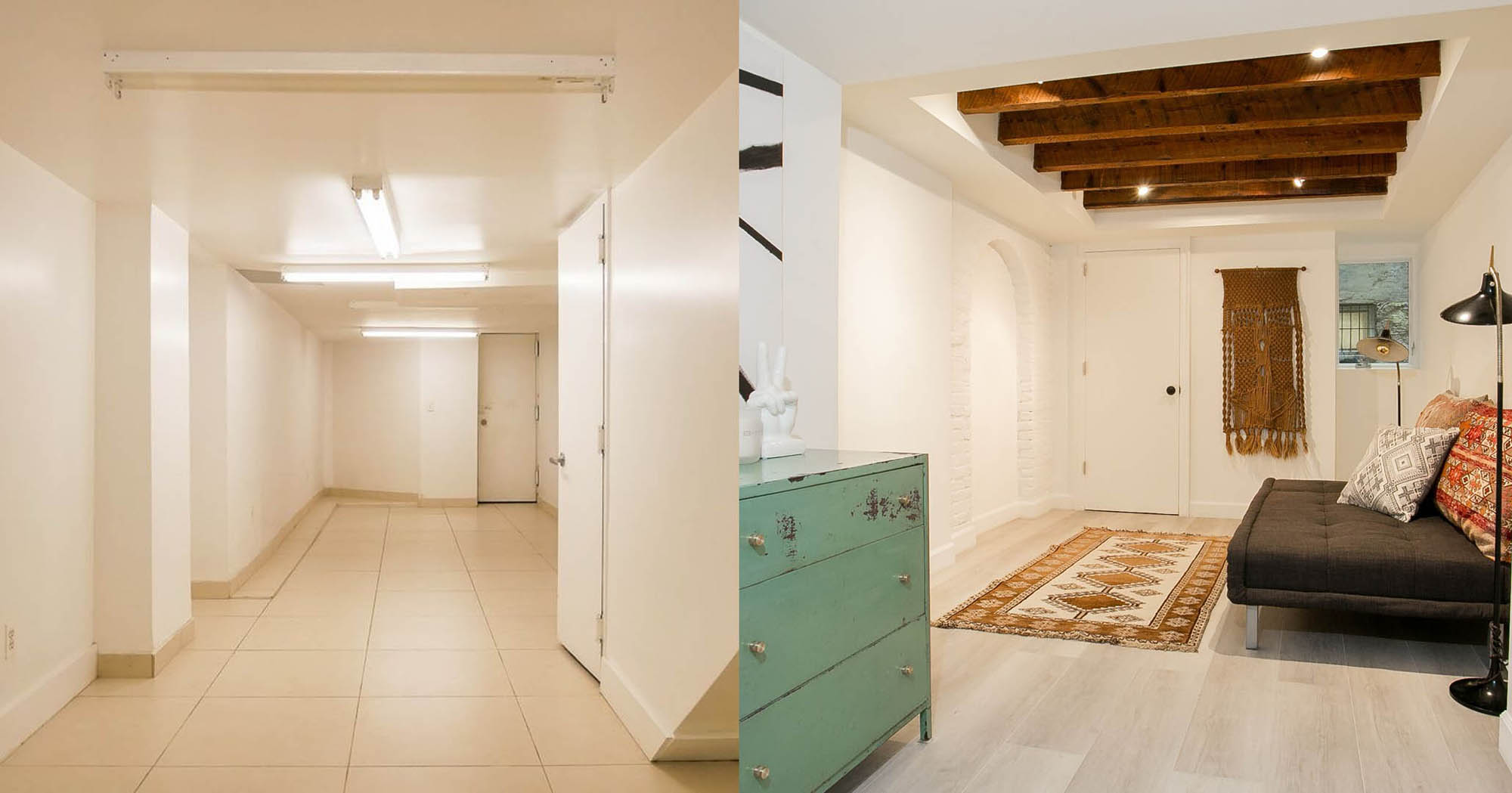
Basement Before & After, 794 Saint Johns Place #1C, Crown Heights, Brooklyn
Look for “sponsor unit” co-ops.
A sponsor unit is still owned by the original owner or the corporation that first converted the building into co-ops. These are sometimes in original condition or renovated with minimal basic finishes. This is a chance to start fresh or add your own personal touches if some of the more major work has already been done. As an added benefit, sponsor units do not require co-op board approval and will often allow for less than a 20% down payment.
Estate. Condition.
These two words could be your best friends if you’re on the fixer-upper hunt. These units are not necessarily being sold by the heirs to a deceased owner. “Estate condition” more often refers to the condition—ranging from total wreck to in dire need of style and function updates.
Look at listing date.
Units that have been actively on the market more than 90 days without much interest might be suffering from dated finishes—or even just poor staging—and could be a good opportunity to grab a great apartment if you’re the buyer who is able to visualize the potential. A word of caution: Not every fixer upper has potential. Look for a good existing layout (or one that can be easily changed). Moving plumbing and electric are two big-ticket items, and very often it is difficult, if not impossible, to move toilets and sinks in an apartment. Ask to see the building’s renovation policy and any history of renovations in the building before making an offer or signing the contract.
Search units just above your preferred max price.
You might find a negotiable fixer-upper in a neighborhood you thought was out of your price range, and you can make upgrades over time. Some “move-in ready” units might have inexpensive or outmoded finishes, but have natural light, great views, a highly desirable location, potential to create a second or third bedroom, or original details. A unique or redeeming factor is a must and will add to future resale value.
Tip #3: No Pain, No Gain
Whether you’re handy or need to hire everything out, every renovation takes time and money, and makes a mess. So just embrace the temporary madness. Minimize stress by making a solid plan before putting a hammer through a wall. Make a list of everything you think you want to do and spend some time surfing Pinterest for design ideas. Then, get multiple bids and decide where you’re willing to compromise and cut down your wish list. Choose finishes—tile, paint colors, light fixtures, etc.—before you start work. Because unexpected issues come up with every renovation, front-end planning will help you manage changes during work. Are renovation pains worth it? Yes! You have potential to build instant equity while creating a customized apartment and achieving your dream home. Whether you’re ready to dip your paintbrush or tear down walls, there’s a renovation project to fit every budget and level of enthusiasm.
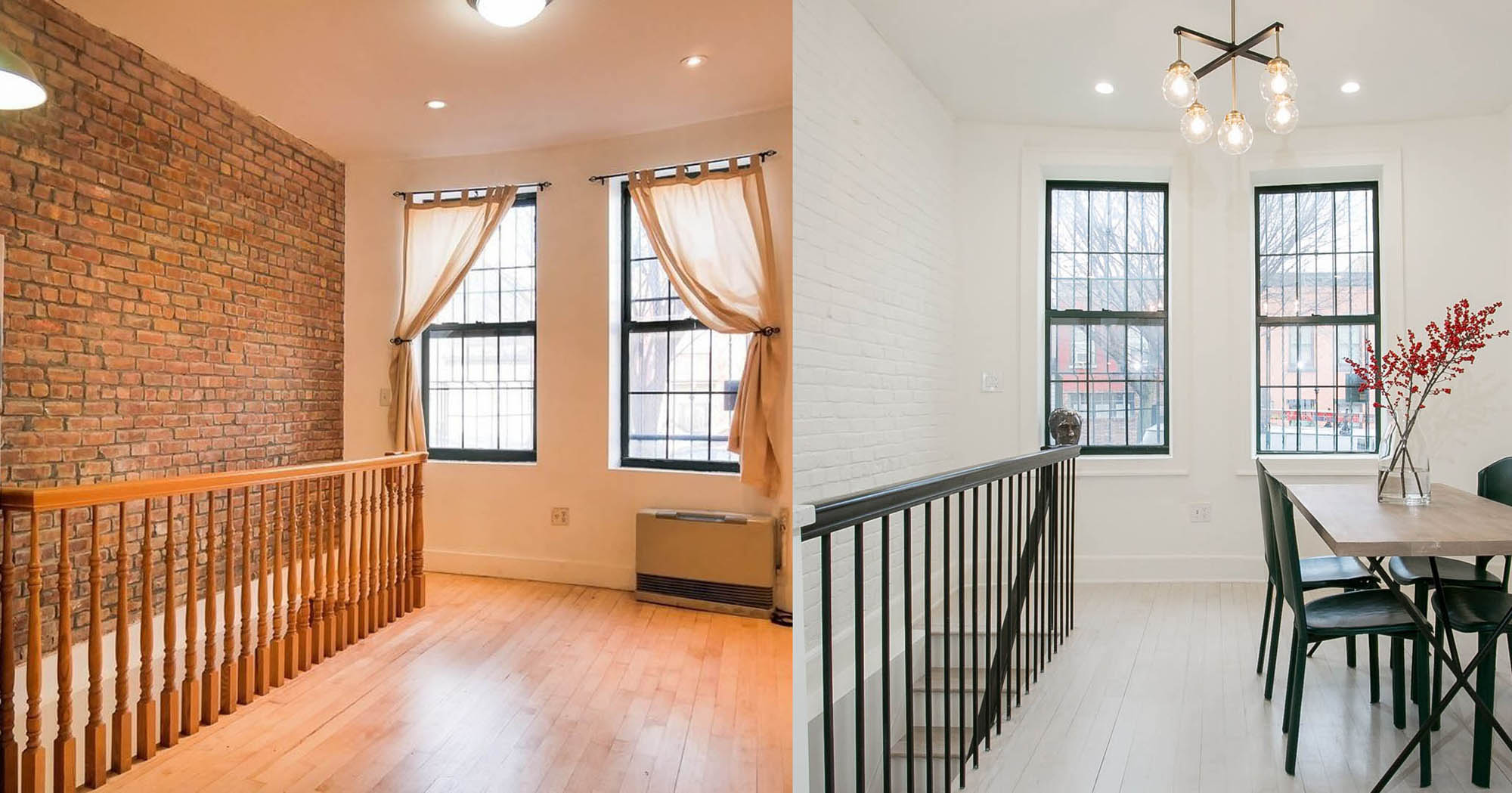
Dining Room Before & After, 794 Saint Johns Place #1C, Crown Heights, Brooklyn
Easy Cosmetic Fixes:
- Paint. Paint. Paint. It’s no joke that paint is the cheapest and easiest way to refresh and reimagine your space. Don’t be afraid to use color…appropriately.
- Refinish wood floors. Changing the stain color can take your apartment from dated 1980s oak to light Scandi-modern or rich traditional.
- Kitchen cabinet refresh. If your cabinets are in good shape, altering the color and updating hardware is an economical way to achieve a big impact. Hire a professional who specializes in cabinet painting. Trust me.
- Bathroom tile and vanity. If your tile is satisfactory, new grout can go a long way to making the entire space feel new again without creating a huge mess. Changing out the vanity, medicine cabinet and light fixture might be all you need to go from blah to spa.
Bang for Your Buck:
- Lighting. Think about improving the amount, quality and placement of light, in additional to stylish fixtures.
- Built-ins. Custom or semi-custom, when you live in an apartment, storage is everything and built-ins can be life-changing.
- Exposing brick, beams or other original features. Create something your friends will want to Instagram. Unique features can also set your apartment above the competition upon resale.
- Doors, moldings and hardware—oh my! These items are often overlooked, but details are like the accessories that perfect an outfit and make an apartment look like a million bucks.
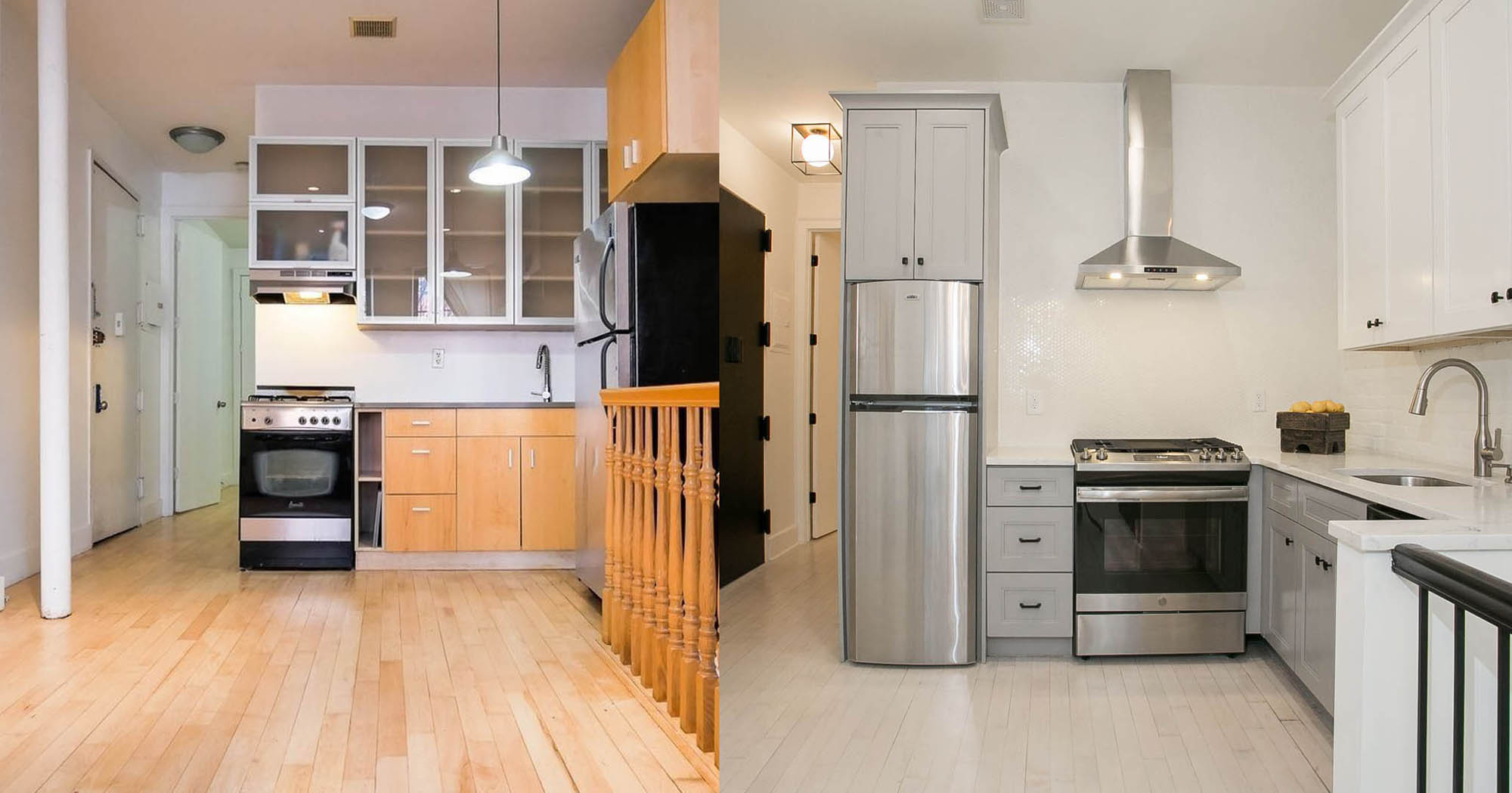
Kitchen Before & After, 794 Saint Johns Place #1C, Crown Heights, Brooklyn
Pricier Projects:
- Replace kitchen cabinets. There are endless cabinet options to fit every budget. Just be sure to buy quality so they last for more than six months. Replace the countertops, sink, faucet and everything else while you’re at it. It’s true that kitchens and baths sell, so if you don’t over-invest in finishes you will likely see a return.
- Air conditioning. If the building will allow AC, consider installing a ductless system. It changes quality of life, can reduce electric bills and improves resale value.
- Windows. If you’re buying into an older condo building, consider replacing old windows with sound- and heat-reducing windows.
- Electric. Make sure your home inspector checks the electric. Installing a new electric panel and rewiring an apartment is doable but not cheap.
- Structure, foundation, roof, heat, hot water, sewer line. Keep in mind that when you’re buying an apartment, you’re also buying into a building. Review building documents for recent or planned work and have your home inspector look at these elements. The overall health of the building can affect maintenance/common charges and financial assessments on owners to pay for projects.
Have more questions about buying in Brooklyn?
-
7 New Brooklyn Restaurants To Be Excited About
-
14 Ways To Spice Up Your Brooklyn Valentine’s Day
-
10 Of Our Favorite Brooklyn Music Venues
-
Our Favorite NYC Fall Day Trips
-
9 Brooklyn BIPOC-Owned Restaurants to Try in 2024
-
Everything About Pickleball You Were Afraid to Ask, and Where to Play in Brooklyn
